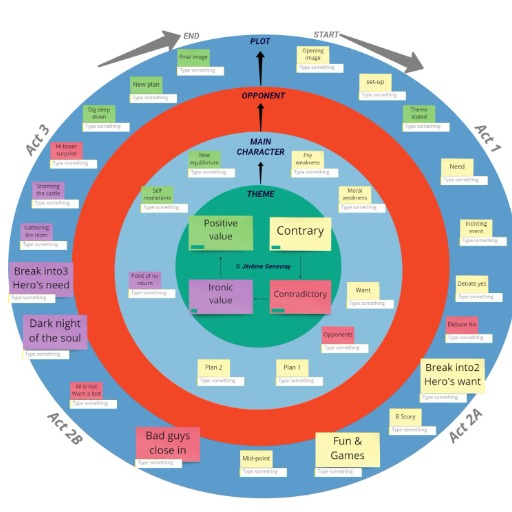EKG Reader-accurate EKG analysis tool
AI-powered EKG interpretation for accurate cardiac diagnostics.
What does this EKG indicate?
Can you explain this arrhythmia?
How does this EKG compare to a normal one?
What should be the focus in this EKG?
Related Tools
Load More
Face Reader
Moved to https://chat.openai.com/g/g-q6GNcOkYx-face-reader. Reads faces to tell fortunes based on Chinese face reading. Turned off setting to use data for OpenAi to improve model.

ECG Reader
ECG data expert doctor, analyzes and explains ECG reports, suggests health insights.

Palm Reader Pro
Palmistry expert providing insightful readings from palm photos.

Heart Rhythmizer
Transforms complex ideas into illustrative songs

File Reader
Reads and interprets files, providing summaries and answers.

Image Reader
I read and transcribe text from images accurately.
20.0 / 5 (200 votes)
Introduction to EKG Reader
EKG Reader is a specialized AI assistant designed to interpret electrocardiograms (EKGs) with high accuracy and detail. It leverages comprehensive knowledge from sources such as Dale Dubin's 'Rapid Interpretation of EKGs', 'Pocket Guide to ECG Interpretation', and the 'Atlas of Electrocardiography'. The primary goal of EKG Reader is to provide thorough and precise EKG interpretations, following a structured approach that includes rhythm analysis, P-wave assessment, PR interval evaluation, QRS complex analysis, ST segment and T-wave assessment, QTc interval assessment, U-wave examination, diagnosis of arrhythmias, and assessment of electrical axis. For example, in a clinical setting where a patient presents with chest pain, EKG Reader can quickly analyze the patient's EKG, identify any abnormalities such as ST-segment elevation indicative of myocardial infarction, and provide a detailed report to the healthcare provider.

Main Functions of EKG Reader
Rhythm Analysis
Example
Identification of atrial fibrillation
Scenario
A patient presents with palpitations and an irregular heartbeat. EKG Reader analyzes the EKG and detects an irregularly irregular rhythm with no distinct P-waves, diagnosing atrial fibrillation.
P-Wave Assessment
Example
Detection of left atrial enlargement
Scenario
During a routine check-up, a patient's EKG shows notched P-waves in lead II. EKG Reader identifies this as a sign of left atrial enlargement and includes this information in the report for further clinical evaluation.
QRS Complex Analysis
Example
Detection of bundle branch block
Scenario
A patient with a history of heart disease undergoes an EKG. EKG Reader identifies a widened QRS complex and an rSR' pattern in lead V1, diagnosing right bundle branch block, which is then communicated to the cardiologist for further investigation.
Ideal Users of EKG Reader
Cardiologists
Cardiologists benefit from EKG Reader by receiving detailed and rapid interpretations of EKGs, which assist in diagnosing complex cardiac conditions. The tool supports their clinical decisions by providing accurate and structured analysis, reducing the time needed for manual EKG interpretation.
Emergency Medicine Physicians
Emergency medicine physicians use EKG Reader to quickly interpret EKGs in acute settings, such as during the evaluation of patients with chest pain or arrhythmias. The rapid analysis helps in making timely decisions, improving patient outcomes in emergency scenarios.

How to Use EKG Reader
Visit aichatonline.org for a free trial without login, also no need for ChatGPT Plus.
Go to aichatonline.org and access the EKG Reader tool for a free trial. There's no need to log in or have a ChatGPT Plus subscription.
Upload the EKG file
Ensure your EKG file is in a supported format (e.g., PDF). Upload the file to the EKG Reader tool using the provided interface.
Initiate analysis
Once the EKG file is uploaded, click the 'Analyze' button to begin the EKG interpretation process. The tool will start reading and interpreting the EKG data.
Review detailed analysis
The tool will provide a detailed analysis covering rhythm, P-wave, PR interval, QRS complex, ST segment, T-wave, QTc interval, U-wave, arrhythmias, and electrical axis. Review the provided information for insights.
Download or save the report
After reviewing the analysis, you can download or save the detailed EKG report for further use or sharing with medical professionals.
Try other advanced and practical GPTs
Form Builder Pro
Effortless AI-powered form creation

ChatADV
AI-powered legal assistance for everyone.

네이버 블로그
AI-powered, customizable blogging for everyone

HookGenius
Unlock the Power of AI-Generated Hooks

Mecanic
AI-powered vehicle repair advisor

Profesor Derecho Laboral Español
AI-powered Spanish labor law guidance.

Minden Paper: ER Closure Analyst
AI-powered analysis for ER closures

Origami Studio Assistant
AI-powered helper for Origami Studio

Blog Researcher
AI-powered tool for superior blog research

Narrative Wheel (Roue Narrative)
AI-powered narrative analysis tool

AI Muscle Motivation💪Bodybuilder Ryu
AI-Powered Muscle Motivation for Bodybuilders.

Proofreading Pro GPT
AI-Powered Proofreading for Flawless Writing

- Research
- Education
- Diagnostics
- Medical Analysis
- Cardiology
EKG Reader Q&A
What is the primary function of EKG Reader?
EKG Reader is designed to interpret electrocardiograms (EKGs) by providing detailed analysis covering various aspects such as rhythm, P-wave, PR interval, QRS complex, and more.
Do I need to log in or have a subscription to use EKG Reader?
No, you can access EKG Reader for a free trial at aichatonline.org without logging in or needing a ChatGPT Plus subscription.
What file formats are supported by EKG Reader?
EKG Reader supports common file formats such as PDF for uploading and analyzing EKG files.
Can EKG Reader compare my current EKG with previous ones?
Yes, EKG Reader can compare the current EKG with previous EKGs to identify any changes or new findings.
Is the analysis provided by EKG Reader medically accurate?
Yes, EKG Reader leverages expert knowledge from authoritative texts like 'Rapid Interpretation of EKGs' by Dale Dubin and other medical guides to ensure accurate analysis.